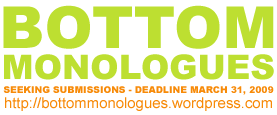The year 2008 ended on a rather sad note. India and the US, among several other nations, chose not to sign a non-binding French-Netherlands drafted UN declaration that decriminalizes homosexuality. For more on the Statement itself and additional links, read my previous blogpost titled "Universal means Universal." What's perplexing is that both these countries are world's foremost democracies, yet they chose to be non-committal when it came to calling for an end to discrimination and abuse based on sexual orientation and gender identity. Sadly, this also put them behind 66 other states from five continents, including six African nations that collectively formed the signatories to the General Assembly Statement.
The signatories:
Albania, Andorra, Argentina, Armenia, Australia, Austria, Belgium, Bolivia, Bosnia and Herzegovina, Brazil, Bulgaria, Canada, Cape Verde, Central African Republic, Chile, Colombia, Croatia, Cuba, Cyprus, Czech Republic, Denmark, Ecuador, Estonia, Finland, France, Gabon, Georgia, Germany, Greece, Guinea-Bissau, Hungary, Iceland, Ireland, Israel, Italy, Japan, Latvia, Liechtenstein, Lithuania, Luxembourg, Malta, Mauritius, Mexico, Montenegro, Nepal, Netherlands, New Zealand, Nicaragua, Norway, Paraguay, Poland, Portugal, Romania, San Marino, Sao Tome and Principe, Serbia, Slovakia, Slovenia, Spain, Sweden, Switzerland, the former Yugoslav Republic of Macedonia, Timor-Leste, United Kingdom, Uruguay, and Venezuela (Source: IGLHRC).
What's reassuring however is the fact that for the first time a statement, condemning discrimination and abuses against lesbian, gay, bisexual, and transgender people drew such huge support from large parts of the world, some of which may still be reeling under draconian laws. Seen from this perspective, it is definitely the beginning of a new era. To visit the French website and watch the United Nations webcast, click here. For more information and full text of the French Statement, visit IGLHRC site or click here.








.JPG)


